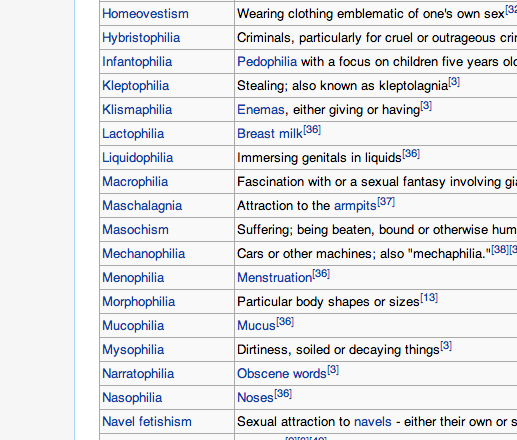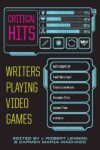It never starts out intentional. I’m brushing up on some high-school biology, and need to look up the stages of mitosis again, or maybe I’m trying to encourage my inferiority complex and have Googled a former classmate, only to find out they have their own Wikipedia page. No matter the tangled path I take to get there, the end result is always the same: a few hours later, I’m sitting in front of my laptop with three tabs open on serial killers, violent paraphilias, or fast-moving infectious diseases. It’s kind of embarrassing. I tweeted about it, once: “help,” I wrote, “have fallen into wikipedia k-hole and can’t get out.”
 You can’t walk a few synaptic steps in cyberspace without running into some article about how the Internet is killing our attention spans, but I’d argue that the Internet just redirects our attention in specific ways. Some of those ways revolve around .gifs of cute animals or porn or hate-reading Reddit threads discussing things we profess to abhor. Sometimes, as with my own habits, it turns into an exploration of the dark and internal. Murder and sex. Why wouldn’t you read about it?
You can’t walk a few synaptic steps in cyberspace without running into some article about how the Internet is killing our attention spans, but I’d argue that the Internet just redirects our attention in specific ways. Some of those ways revolve around .gifs of cute animals or porn or hate-reading Reddit threads discussing things we profess to abhor. Sometimes, as with my own habits, it turns into an exploration of the dark and internal. Murder and sex. Why wouldn’t you read about it?
The Internet has made it incredibly easy to look at a lot of things. Some of these things are things that most people don’t even know exist: the public, recent shutdown of the black-market “deep web” site Silk Road exposed many people to the weird, seamy underbelly of the WWW. If the Internet is an ocean, the deep web is the part that no one ever sees and must go hunting for, unconnected from the surface of the sea of links and content that make up so much of our daily lives. And it’s huge.
But it’s just as tempting to slip into the dark and mysterious from the surface itself: with topics like “most evil serial killers” or “deadliest diseases” just a quick Wikipedia search away, it’s an easy spiral down into darkest, weirdest, fantastical. The Internet is enormous. There are a lot of dark, indulgently interesting things in the world—it’s not as though the web created them. But they’re so much closer together in the synaptic space online. Safe to read about, because the web provides some distance. Collected there just for you, in unending iterations of related links.
When I think about my Wikipedia habits, I classify them as somewhat silly. There’s no benefit to knowing the grisly details of famous unsolved murders, or what piquerism is (also grisly). The fascination with the true-but-distant—the big scary impossible, the theatrically gory—is made so much more consumable with our friend, the Internet. But of all the things one can spiral into, maybe some light reading of heavy gore isn’t so bad. It means one always has an interesting, albeit unsettling, anecdote for dinner parties. And reading about creepy things is infinitely preferable to doing them: there are a lot worse rabbit holes to fall into.
This post may contain affiliate links.







